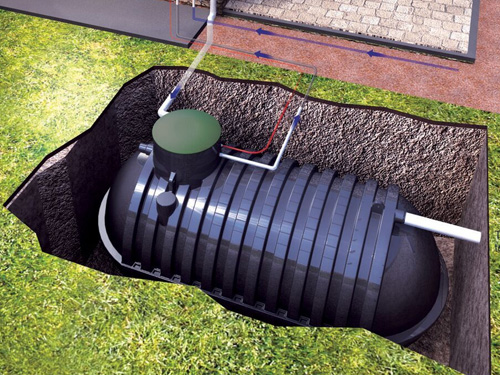PERIMETER BLOG
LATEST NEWS & INTERESTING FACTSIf you’ve been following along with the blog for the past eight months or so (and who’s kidding who, of course you have), then you’ve been glued to a steady progression of content. From posts about external drainage and landscaping to inspection tips to horror stories about Poly B tubing, we’ve done our best to provide tricks to save you money.
In the last few months we’ve been trying to save more than just your pocketbook; we’re trying to save the planet.
Big job, we know. But we’ve never shied away from a big job and we ain’t going to start now.
When Chris Gray, our fearless leader, started Perimeter Drainage, it was simply to provide a valuable service to homeowners in North Vancouver and surrounding areas. Well, turns out Chris was a lot more useful than he thought, and there was a lot more work to be done in residential and industrial yards throughout his neighbourhood and beyond.
Recycling Construction Waste
Let’s fast forward a little bit – we’ll come back to drainage in a second.
As the summer sun beats down, these days the lion’s share of our work has been supplying Perimeter Mini Bins to companies in Metro Vancouver. Perhaps you read last week’s post about the film industry – construction waste affects companies regardless of their industry or their size. You’re hard-pressed to find a business operating in North Vancouver that doesn’t create waste.
A lot of it can be dealt with in-house, and that’s what we’ve been encouraging on the blog for the past few weeks.
Do you create a lot of unusable paper? That’s an easy one. You can deal with that.
What about concrete? Drywall? Wood? Steel? Plastic?
For relatively larger helpings of construction waste, our customers use traditional Mini Bins or Split Waste Mini Bins (to cut down on costs).
But you already know all this because you read the blog, right?
Right. But we thought it was a good time to go back to our roots and remind everybody that recycling, conservation and sustainable living is more than just a chore, it’s a lifestyle we all ought to adopt.
Rainwater Harvesting
You see, as we transformed from a rain and drainage blog into a construction waste management blog, it didn’t dawn on us that we were essentially speaking the same language.
Until now.
It’s the beginning of May and the summer is here. The rain has stopped for the most part and your drainage concerns can be put on the shelf for a few months.
However, there are few resources on Earth that are as precious as water. We live in a humid, precipitous climate so it’s easy to take the rain for granted, but this summer is going to be different.
It’s one thing to separate your construction waste, your office waste and your household items for recycling, we all know it’s our responsibility to dispose of our garbage properly.
But what about the rain? Rain falls from the sky and breathes life into plants, animals, and human beings, but so much of it is still wasted. While the sun is out and the clouds stay away, we break out the hoses and water our lawns until they’re as green as the neighbour’s next door.
Rainwater recycling is actually easier than recycling your construction waste, too. You can buy large rainwater tanks from us or a smaller rain barrel or you can make one on your own, it doesn’t matter.
It’s going to be a hot, dry summer. The good news is that it’s not too late to start collecting what little precipitation their is to use on your plants, the bad news it’s too late to catch a week’s worth of downpour.
The point is to start. While you’re recycling your milk jugs or your rebar or your food waste, commit to recycling the rain that drops on your head as well.
Your planet will appreciate it.

